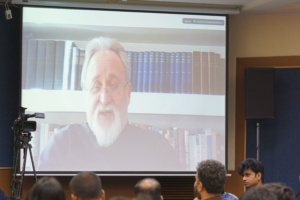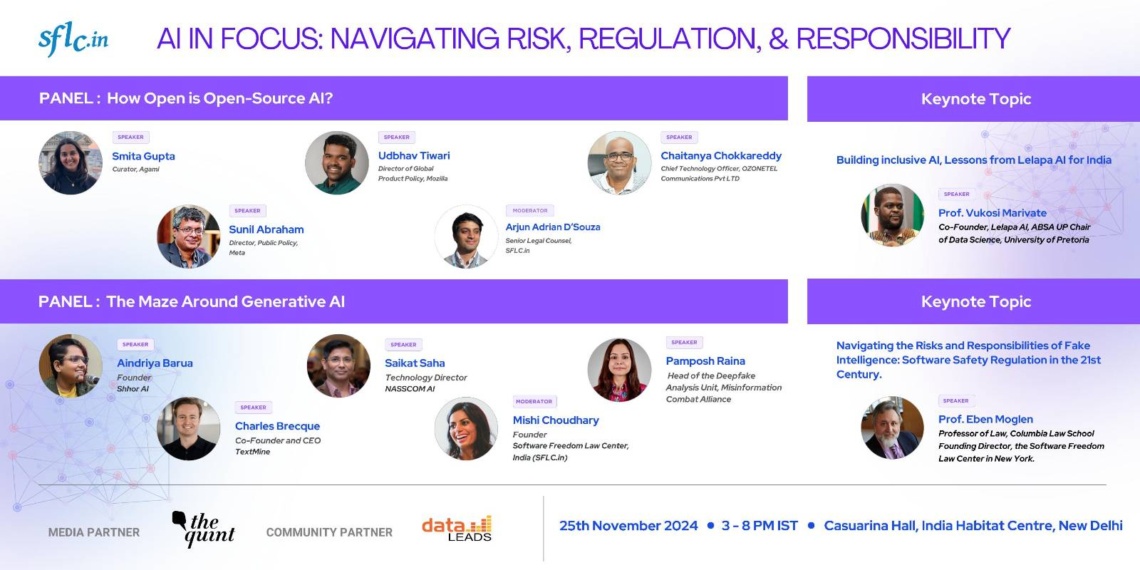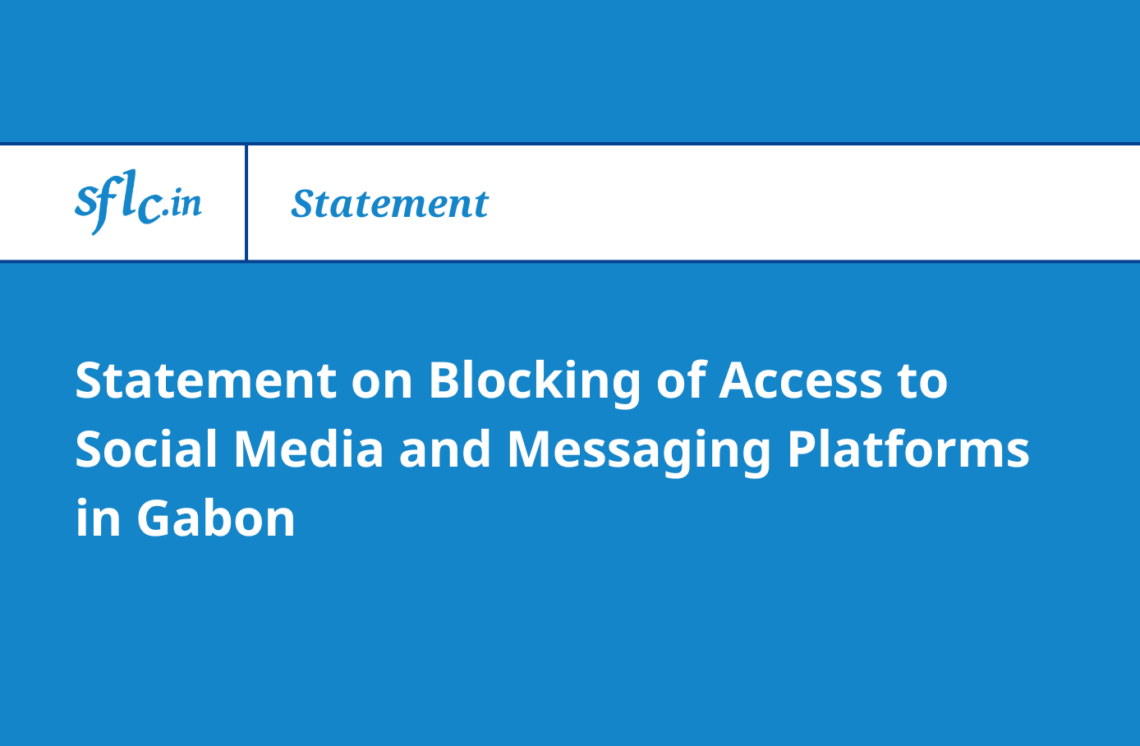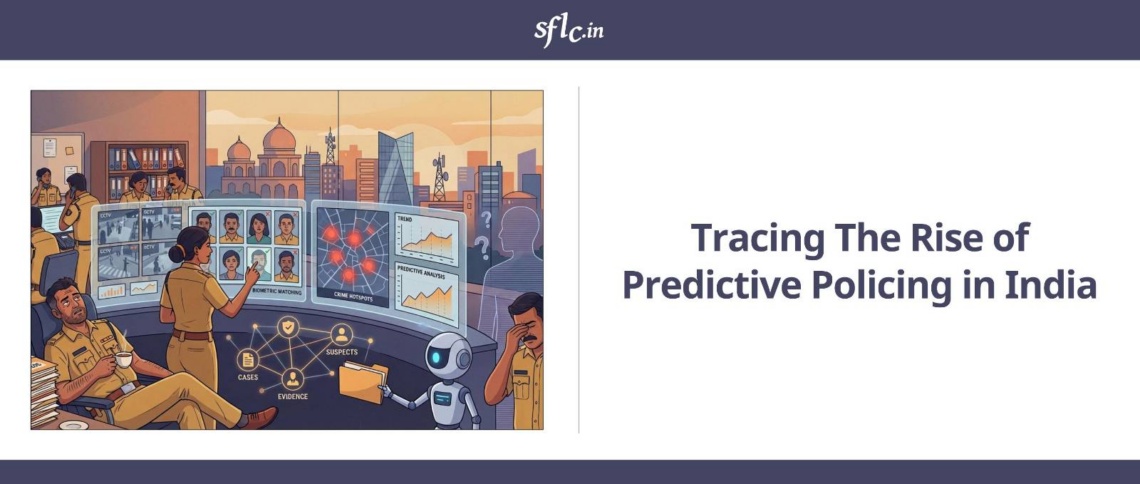Software Freedom Law Center, India (SFLC.in) hosted the event, “AI in Focus: Navigating Risk, Regulation and Responsibility,” to discuss the potential of artificial intelligence (AI) in shaping India’s future on November 25th, 2024, at the India Habitat Centre, New Delhi. The Event was attended by a diverse panel of experts, each offering unique perspectives on AI’s opportunities and challenges in a rapidly evolving landscape.

The first panel, “The Maze Around the Generative AI,” explored how AI can bridge gaps across industries and communities, as well as data misinformation and responsible AI. Saikat Saha, Technology Director at NASSCOM, highlighted AI’s potential to unlock new economic opportunities for SMEs, emphasizing the importance of balancing innovation with accountability. Pamposh Raina, Head of the Deepfakes Analysis Unit, delved into the increasing threat of AI-driven misinformation and the need for collaborative solutions to enhance digital literacy. Building on this, Aindriya Barua, Founder & CEO of Shhor AI, spoke about the challenges of moderating hate speech, particularly in India’s diverse social and linguistic landscape, and AI’s role in creating models to dissect this. Meanwhile, Charles Brecque, Co-Founder & CEO of TextMine, addressed the significance of privacy-first AI models, particularly in sensitive sectors like healthcare, advocating for robust localized solutions to foster trust.
Mishi Choudhary, Founder of SFLC.in moderated the session. She said we need regulations—either a risk-based approach like the EU’s or a framework tailored to India’s context—but functioning without one is not an option. Pro-innovation mechanisms must be implemented without compromising people’s rights. Environmental impacts and biases must also be carefully considered.


The second panel, “How Open is Open-Source AI?” shifted focus to the regulatory, ethical, and technical challenges in developing Open-Source AI. Chaitanya Chokkareddy, CTO of Ozonetel Communications, emphasized the power of open-source AI, advocating for Indian-language models like Chanda Mama AI that leverage community-driven datasets to democratize access to technology. Udbhav Tiwari, Director of Global Product Policy at Mozilla, pointed out the ambiguity surrounding open-source AI, stressing the need for clear definitions, global standards, and incentives to promote safer AI systems. He supported the establishment of an Indian AI Safety Institute to drive research and regulation in this domain.
Adding to this, Smita Gupta, Curator of OpenNY AI, spoke about scaling AI innovations and overcoming challenges in clean data collection, sustainability, and localization. She highlighted how tools like Jugalbandi, an open-source conversational AI, underscore the importance of interoperability and community co-creation. Sunil Abraham, Policy Director at META India, provided a historical perspective on open-source licensing and discussed Meta’s contributions to advancing open AI models. He also addressed the critical need for explainability in large language models (LLMs), particularly in high-stakes applications like healthcare, while predicting a future where AI systems are minor, mobile-friendly, and more accessible.
Arjun Adrian D’souza, Senior Legal Counsel at SFLC.in moderated the panel.
In his keynote address, “Building Lelapa AI, Learnings for India from Lelapa AI,” Prof. Vukosi Marivate addressed data safety concerns while training the AI models. He said, “The more we wait to resolve issues, the more costly it becomes to address them. Data is about people. We need to see who it is that benefits and how we can capacitate today. We need to protect communities. Africa cannot become a cheap data market.”


In his keynote address, Prof. Eben Moglen addressed the concern over machine learning and how we must also adopt it. While discussing his topic, “Navigating the Risks and Responsibilities of Fake Intelligence: Software Safety Regulation in the 21st Century,” he said we need to accept the power of machine learning systems and their inability to be like us. He cautioned against the illusion that machines can replicate human consciousness, emphasizing the cultural and ecological costs of unchecked technological advancement. Moglen called for a shift from viewing AI as a tool of control to one that empowers and uplifts communities, urging thoughtful regulations to mitigate harm.
If you were not able to attend the event, you can watch the session here: Watch Here
The Quint supported the event as a media partner and Dataleads as a community partner.
As a media partner of the vent, The Quint offers an exclusive 20% discount on its annual membership. You can join the membership on the following link: https://pages.razorpay.com/pl_MKNYUsYKvWBKHD/view




